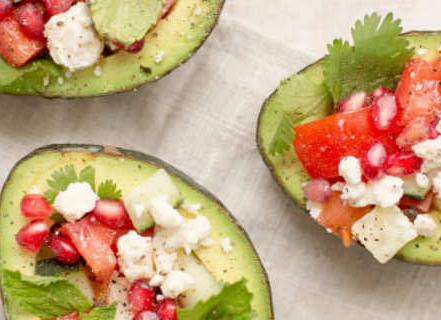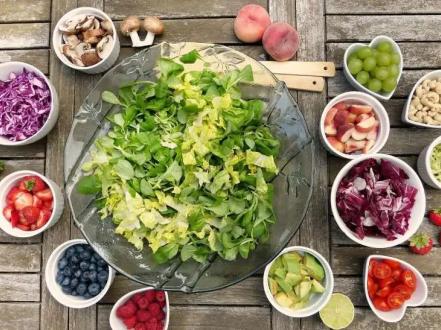To have good eye health, carrots are considered the top choice for being eye-friendly. For generations now, everyone has been informed that eating carrots will enhance their eyesight, especially in the dark. But do they actually work?
Let’s explore the nutrition science of carrots and eyesight, dispel common myths, and uncover what carrots do and don't do for your eyes. Vision care tips, as well as how carrots compare to other superfoods for enhanced vision, are also included.
If you're looking for reliable sources of care, you’ll also find help in the best eye doctor’s catalog.
What is the Connection Between Carrots and Eyesight?
The fact that carrots are supposedly good for your eyes isn't random—it's actually derived from real nutritional facts, even if often exaggerated a bit. But are carrots good for eye health? They are, though, with many important considerations. Let's delve a bit deeper into the biology and nutrition of this orange root vegetable.
Beta-Carotene and Vitamin A in Carrots
Carrots are justifiably famous for their beta-carotene content, a pigment that gives them their deep color and functions as a powerful antioxidant. Most importantly, however, this nutrient is converted by the body into vitamin A, which plays a key role in producing rhodopsin, a retinal protein that allows us to see in dim lighting. Without this essential nutrient in the body, the eyes quite simply may not function as needed, especially in dim lighting.
Vision Problems Linked to Vitamin A Deficiency
When your body fails to get sufficient quantities of this important nutrient, eye issues arise. Night blindness is one of the initial symptoms, where your eyes have trouble adjusting to low-light conditions. Dry eyes, corneal ulcers, and even blindness in severe situations are other issues. Carrots, with their nutritional content, are a good way to stay away from such shortages.
How Do Carrots Measure Up to Other Eye-Friendly Foods?
Carrots are helpful, but they're not the only food good for the eyes. So, are carrots good for eye health compared to other nutrient-rich foods? Let's analyze.
Foods High in Lutein and Zeaxanthin
Dark leafy greens like spinach, kale, and collards are foods rich in lutein and zeaxanthin, two antioxidants that are sequestered in the retina and work to eliminate damaging light. They have been found to be linked with reduced risk of age-related macular degeneration (AMD), a leading cause of vision loss. Carrots are good for general vision health, but greens are the leading protectors of the long-term retina.
Are Carrots Enough Alone?
If you’re asking, how are carrots good for your eyes, it’s important to remember they’re part of a broader nutritional puzzle. Relying solely on carrots isn’t enough to protect your vision. A diverse diet that includes leafy greens, citrus fruits, eggs, nuts, and oily fish will give your eyes the full range of vitamins and antioxidants they need.
Cooked vs. Raw Carrots: Which Is Best for Your Eyes?
Something you may not know: You can even enhance the health value of carrots by cooking them. Heat breaks down the cell walls in carrots, which means their nutrients are more accessible to be absorbed into your body. In short, you can receive more vision-improving value from steamed, roasted, or pureed carrots than raw ones. So, are cooked carrots good for your eyes? Yes—they may even be healthier in some ways than raw carrots.
That being the case, food preparation counts. Steer clear of overboiling or frying carrots using unhealthy fats. Light roasting or steaming is best to maintain nutrients while increasing bioavailability.
Can Carrots Prevent Eye Diseases?
This is where life tends to lag behind expectation. Although carrots help with good sight and with avoiding deficiency diseases, they are not a safeguard against every disease of the eye. They won't cure glaucoma, cataracts, or AMD on their own. These are multifactorial diseases that are influenced by genetics, age, lifestyle, and diet in general.
But a diet rich in carrots and other very healthful foods may reduce your risk or postpone the onset of some eye disease. They're part of the prevention picture—but not the whole thing.
Myths Surrounding Carrots and Eyesight
Are carrots good for eye health, or is it just wartime propaganda that has endured?
The origin is from World War II, when the British Royal Air Force credited their pilots' success to having eaten carrots, in part to conceal their use of radar. Even though it was wonderful, morale-boosting propaganda, it also planted the myth that carrots greatly improve eyesight. Carrots really can't enhance your eyesight above what it has to offer.
How are carrots good for your eyes? They sustain normal function and prevent deterioration due to nutrient deficiency. But they won't give you superhuman night vision.
The Reality: What Carrots Can and Can't Do
Can: Preserve the health of the cornea and retina
Can: Prevent night blindness and dry eyes that accompany dietary issues
Can't: Cure established eye disease or improve vision beyond its natural capability
Can't: Replace comprehensive vision care or qualified medical counsel
Conclusion
So, are carrots good for the eyes? Yes—healthy eyesight is encouraged by them, but they're no panacea. Combine them with a well-balanced diet, routine check-ups, and professional vision care.





